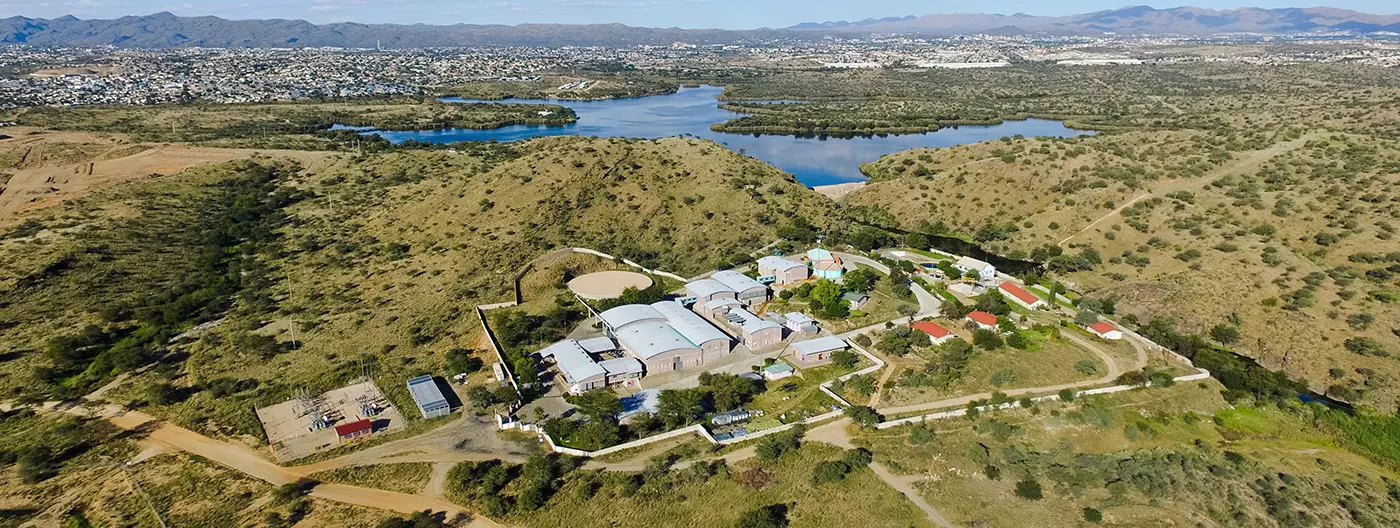
"In Windhoek, every drop of water counts"
This is WINGOC’s motto. It manages one of the only facilities in the world to produce drinking water from wastewater. In 2001 the consortium signed an operating contract with the city of Windhoek aimed at improving the water treatment processes and increasing the site’s production capacity. Recycling wastewater increases the amount of drinking water available, but it also has a twofold benefit for the environment: it avoids tapping into natural resources and significantly reduces pollutant discharges.
Namibia is one of the most arid countries in Africa: the average rainfall is 250 mm per year, but the heat causes 83% to evaporate - only 1% of rainwater infiltrates into the ground. Consequently, the water supply of Windhoek - located in central Namibia - depends mainly on boreholes and three dams located 60 and 200 km away. To cope with shortages, the city has sought alternative solutions to secure its water supply.
A process that mimics nature
To transform the wastewater from Windhoek’s 350,000 residents into drinking water, the Goreangab water treatment plant uses a process that mimics nature.
"Everything is done biologically. The bacteria help digest the human waste and pull it out of the water, essentially mimicking what happens in nature but a whole lot faster," said Justina Haihambo, Process Engineer at the plant.
The facility features state-of-the-art "multi-barrier" technology: ozone treatment, ultra membrane filtration and residual chlorination. This process eliminates all pollutants and contaminants. The various treatments, coupled with rigorous bio-monitoring programs, guarantee high quality, safe drinking water. It is a global benchmark since the only cities in the world to produce drinking water from their wastewater are Windhoek and Singapore.
"The Goreangab plant has become an international benchmark, an innovative and sustainable water management model and an example of a successful public-private partnership that attracts experts from Australia, Singapore and the United States. And if in the future the climate becomes even drier, recycling water will be even more important", said Pierre van Rensburg, head of Windhoek's water department.
"With the increasing risk of water stress, Veolia is a solid partner in implementing complex solutions. Today, the efficient process used in Windhoek has yet to be developed in Africa", concluded Patrice Fonlladosa, Senior Executive Vice President Africa-Middle East Veolia
Windhoek figures
350,000 inhabitants supplied with drinking water (35% of the needs of the urban area)
21,000 m3: the daily production of drinking water
+ 6% per year: urban growth of the city of Windhoek.
More :
> Circular cities: creating local loops to generate local value
>Wastewater reuse, a second life for an essential resource
> A resilient city: making cities more resistant to impacts and risks
> Veolia contributes to “resourcing the world”
> Veolia’s water management expertise
> Veolia’s website in Africa
> WINGOC: Wastewater to clean water - Windhoek, Namibia

